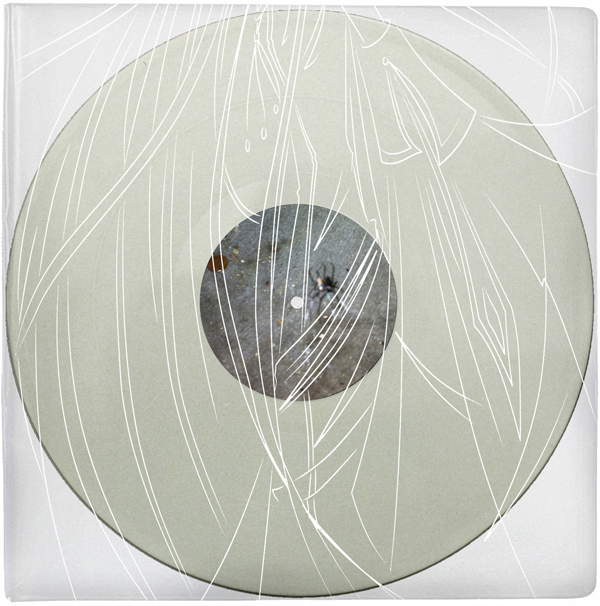
“There’s a whole conversation to be had about irony and laptop DJs” – An interview with M.E.S.H.
Lisa Blanning talks with former Janus resident and recent PAN label signing M.E.S.H. about his new EP and Berlin’s converging post-internet and experimental bass music scenes.
If techno and house are the pillars of Berlin, supporting a large community of clubbers, dance outliers like James Whipple aka M.E.S.H. often don’t get a look in. Luckily, Whipple has been embraced by a different set of artists entirely—particularly those who shared his long-held affection for digital arts, now subsumed under the label “post-internet”. A Southern Californian routed through New York before turning adopted Berliner, Whipple found musical kindred spirits here through the recently defunct club night Janus, providing wildly eclectic mixes as a resident which were nevertheless still dressed to sweat. Making their own context and encouraging a new audience with line-ups chiefly populated by Fade To Mind and GHE20 G0TH1K-affiliated artists, Janus brought an unlikely but welcome new dimension to Berlin nightlife.
Now releasing his second EP Scythians via local imprint PAN, Whipple’s sound can switch between taut, interrupted, hi-res grooves and billowing, dragged beats, all skewed by an ear tuned to experimentation. While independent sensibilities are evident, they’re also undoubtedly honed by an immersion in this city’s specific creative culture.
James, I was surprised to see that Arca remixed one of your tracks back in 2011. That was before he blew up.
We met back when we were students in New York, I think through a mutual friend, Damon Zucconi, an artist. We were both making totally different music back then.
You seem to know quite a few artists. I know that in 2010 you did this project with Aleksandra Domanović and you’re doing another one with her now.
Yeah, we’ve collaborated a lot. I just finished a score for her next film [From yu to me], a documentary about the transfer of top-level domains during the Yugoslavian wars of the nineties. I guess I knew Aleksandra through the blog she used to run with Oliver Laric, VVORK.COM, which was really influential for me as a student and which would post my work. Around ‘06/’07, we were also members of NASTYNETS.COM, which is currently ransomed by Omani hackers. I guess it was during this time and directly after that I met a lot of artists that I’m still in touch with to varying degrees today.
So how has this interest in digital art—something not only aesthetic, but also with its own social circle, even if the interaction was mostly online—informed the way you make music now or the music that you’re making?
I feel like any answer I could give is going to sound antagonistic. But it seems like every decision I make is because I’m sick of something else. For a time, I was sick of going to openings and didn’t know how to engage with art anymore, so I stayed home and made music because that’s what I liked to do before.
It’s interesting because it feels as though the obvious route would have been for you to go down the art path and become one of these kinds of artists that basically your whole social circle has become. But instead you’ve gone another direction. None of those artists make music, really, and now you’re pretty much exclusively making music. You’re not working with images anymore, are you?
I did the Janus mixtape cover, and every once in a while, a flier or something like that. Music is something that’s been there longer for me. It took a while for me to realize that because I do everything at a third of the speed of a normal human. I did things in the most roundabout and nonsensical way. But I don’t regret it. I was making music a lot more before I went to college. When I was in high school, I was really into making beats all the time. I was really into the mp3 label scene and the Soulseek IDM chatroom. CDR labels, breakcore, all that stuff. [laughs]
I feel like it permeates your work a little. I think that your music is hard to pin down, but I can hear elements of things. One thing I always thought was kind of strange—and I honestly want to get to the bottom of this, I’m not being disparaging—but you seem to have a soft spot for hardstyle. So, what’s the appeal of that?
I have a tendency to exoticize things I find for better or worse to be “very European.” Where I come from, there was not much of a rave culture to speak of, let alone hardcore. I was always attracted to hardcore music, like high bpm, high intensity kind of stuff. What hooked me was the hardstyle that was coming out in like the late 2000s, when the melody came front and center, and the kick drum became a bassline that followed the melody. It’s a really specific sound that I’m into. It’s a glossy, high production value, and very commercial take on hardcore.
I just appreciate that it’s not this ironic thing.
I’m someone that’s drawn to the dramatic. I find that beautiful music. But even if I play hardcore music like that, it’s only very specific tracks that I’ll pull. I could listen to three compilations and only find one track. I can’t stomach the harder stuff that Lars [Holdhus, aka TCF] is into. And it’s like that with other maybe marginalized genres, too. I just go with what I respond to. There’s a whole conversation to be had about irony and laptop DJs.
I saw that in context in New York. And I thought, “Wow, there’s a whole scene of this, actually.”
We’re so spoiled here. It’d be a shame having access to a proper German club with a nice system, and then you’re just signaling how much you don’t care by blasting shitty music.
There’s shitty music and there’s also music that’s at a shitty mp3 rate getting blasted over perfectly adequate club soundsystems.
That happens here, too, sometimes.
Oh, all the time. I would assume you maybe have to do that sometimes, too, because you’re getting a lot of your music off the Internet.
Back before everyone jumped onto Soundcloud—which has been nice because even amateur producers will upload wav files—but back in the day, if I couldn’t find a proper rip of something, I’d have to rip the YouTube file. And then I’d make a mastering preset where I’d take the shitty YouTube rip and bring out the kick drum and take out all of the harsh sounding frequencies so I could actually play it. But that’s the weirdest, most backwards way to present music, just trying to remaster it based on this shitty web upload. Now it’s easier to ask producers directly for access, if the track isn’t available to buy.
Do you want to talk about Janus at all? You guys have shut it down.
It’s kind of unclear what’s going to happen. It was just the right time to end it somehow. It was perfect while it was going, being involved as a resident. When Dan [DeNorch] and Michael [Ladner] started Janus and got J’Kerian [Morgan, aka Lotic] and I involved, we were all going out all the time and absorbing a lot, but felt there was a group of artists and DJs that weren’t getting the right Berlin bookings. Janus kind of crystallized a sound or sensibility that was happening, and now that iteration is realized. Before we started it, it was hard to get noticed individually within Berlin’s huge nightlife apparatus, but it’s a different reaction once people see that you are banding together and doing your own thing. I guess that’s how it always works.
Can you talk about how your music has changed and what’s precipitated that? I just wondered if there was an epiphany moment, where you could point to an event or a record, or some conversation you had that really changed things for you.
Well, partially, it was Janus. Just having a regular spot to play and then working with people that are like-minded, a booker like Dan who is willing to take risks, and then mostly just having a place where every month I can try out new edits, new remixes, new material. It’s one thing to want to be making club music, but not really be playing in clubs a lot. Having a series like that meant making a lot of compromises. We presented a lot of experimental music but always in the context of a “club night.” You’re thinking about the arc of the night, like, “Oh we have this guest that we’re so excited about. What can we play before them that will just get everybody on the floor?”, stuff like that. And it just made me think about production in a different way. Even though this record for PAN isn’t an upfront club record, the title track definitely is. I originally made that as a Janus tool. Even though it’s a terrible DJ tool and it went in a totally different direction.

But it’s the most dancey of all the tracks. Actually that’s my favorite track. I understand what you mean about how it might be weird as a DJ tool because it’s actually quite complicated as a dance song, but it’s got the most innate funk.
Yeah, I’m always looking for tracks that are quantized and produced in a way designed for a club—where it’s upfront and all the frequencies are in the right places, but then they kind of fall apart. So that track has that breakdown in the beginning where it just kind of falls apart. And I made that just because I needed something like that to mix with, and I love to hit other tracks with it. As I spent more time on it, it evolved in a different direction. But it started rhythmically, is what I’m trying to say. From DJing a lot, I’m always looking for stripped-down, percussive music, independent of genre. And the music I make is often trying to fill some gap in my collection.
I can tell that in the first couple of tracks, I guess. But even in the EP previous, you can get a sense of it, and Janus wasn’t going at that point. But then the rest of the tracks in the new EP, I would say not so much.
Yeah, I get what you’re saying. But it’s still produced—it’s not murky, it’s not lo-fi. It’s this really clear digital space.
That’s an interesting way to put it, then you’re actually thinking more from the frequency point of view as opposed to the song construction.
Yeah, like in B2, “Imperial Sewers”, the kick drum really slams in a certain way, the 808 clap is a really bright. I didn’t put distortion on anything, I didn’t make anything woozy. I made it to sound good in a club. I guess there are very few situations where you could play that in a club, but they do exist.
I wasn’t sure if the fact that this record is slightly more experimental sounding was because it was on PAN.
I’m sure that’s part of it. But what interested me about PAN is the fact that the label itself doesn’t necessarily have a signature sound. For me, working with PAN just means I can keep doing what I’ve always done intuitively, and pursue whatever avenues I find interesting. ~
M.E.S.H.’s Scythians EP is out June 6th on PAN.
Published June 03, 2014. Words by Lisa Blanning.
